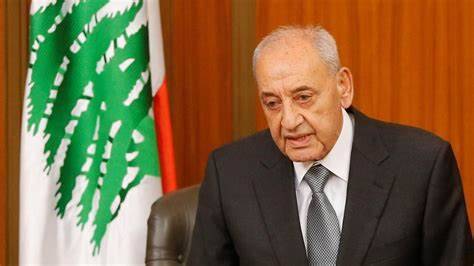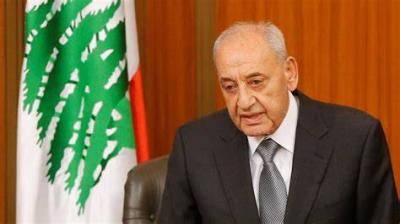Speaker of Parliament Nabih Berri warned of the dangerous repercussions threatening security and stability in the Middle East due to Israel's ongoing war against Gaza and Lebanon for more than nine months, ruling out the possibility of a large-scale Israeli attack on Lebanon. In an interview with the Italian Catholic Church's "Avvenire" newspaper, Berri stressed the "urgent need to stop the genocidal war Israel is waging against the Palestinian people." He stated, "A permanent ceasefire is the entry point to defuse tensions in the region. Lebanon does not need new agreements to restore calm and stability in the border area; there is a Security Council resolution numbered 1701, and Lebanon is committed to all its provisions. The international community must pressure Israel to stop violating this resolution."
During the interview, Berri addressed the current political crisis in Lebanon stemming from the ongoing vacancy in the presidency and the failure to complete this electoral process, saying, "Give me ten days of dialogue among all parliamentary blocs, and you will achieve progress on this issue." He added, "Dialogue among the blocs is aimed at reaching an agreement on either one, two, three, or four candidates who will be consensus candidates within seven to ten days, enabling us to convene the parliamentary session and conduct the elections with a constitutional and national quorum."
Berri praised the good relations and friendship with the Vatican, which is particularly focused on electing a president. This was expressed by Cardinal Pietro Parolin, Secretary of State of the Vatican, during his visit to Lebanon. He anticipated that Pope Francis would visit Lebanon after the presidential election.
Berri affirmed the necessity of implementing unfulfilled provisions of the Taif Agreement and establishing a Senate that represents all sects, moving towards a civil state, which he sees as Lebanon's future. He warned of the existential threat to Lebanon due to the worsening Syrian refugee crisis, calling on the European Union to adopt an approach that facilitates the return of refugees to their homeland and provides them with material and in-kind support in their country, rather than the opposite.
Regarding the Israeli Knesset's vote against the establishment of a Palestinian state, Berri said, "The Israeli position is not surprising, but it would be surprising if the war against the Palestinian people in Gaza and the West Bank ends, because what is happening in the West Bank is a 'mini Gaza.' If Palestinians do not obtain their legitimate rights to establish their independent state with Jerusalem as its capital, it will place the international community and all those who advocate for the two-state solution in a position of deceit."
On the expected outcome of the U.S. presidential elections, he stated that the bet on its results will not change the realities in the region, as U.S. administration policies toward the Middle East remain consistent, whether under Democrats or Republicans.




